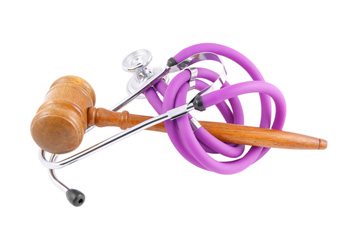How to Handle a Medical Negligence Claim
Introduction
Medical negligence claims can arise when a healthcare provider, such as a doctor, nurse, or hospital, fails to provide the standard of care required for a patient, resulting in injury or harm. If you or a loved one have been a victim of medical negligence, it is important to understand how to handle the claim to ensure that you receive the compensation and justice that you deserve. In this article, we will discuss some key steps to take when handling a medical negligence claim.
Seek Medical Attention
If you or a loved one have been a victim of medical negligence, the first step is to seek medical attention. It is important to address any injuries or harm that may have resulted from the negligence and to document any relevant medical records.
Gather Evidence
Gathering evidence is an important part of handling a medical negligence claim. This may include medical records, photographs of injuries, witness statements, and any other relevant documentation. It is important to keep all of this evidence organized and readily accessible, as it will be needed throughout the legal process.
Consult with an Attorney
Consulting with an experienced attorney is crucial when handling a medical negligence claim. Attorneys who specialize in medical malpractice and negligence can navigate the complex legal system and help you understand your legal options. They can also gather evidence, negotiate with insurance companies, and represent you in court if necessary.
File a Complaint
If you believe that you or a loved one have been a victim of medical negligence, it is important to file a complaint with the appropriate regulatory body. This may include the state medical board or the hospital where the negligence occurred.
Negotiations and Settlements
In many cases, medical negligence claims can be settled outside of court through negotiations with the negligent party or their insurance company. It is important to consult with an attorney before accepting any settlement offers to ensure that you are receiving fair compensation for your injuries or harm.
Conclusion
Medical negligence can have serious consequences for patients and their families. If you believe that you have been a victim of medical negligence, it is important to seek medical attention, gather evidence, consult with an attorney, file a complaint, and navigate the legal process. By taking these steps, you can ensure that you receive the compensation and justice that you deserve.
What is a Medical Negligence Claim?
• A medical negligence claim is a direct legal action taken by a patient who falls victim to the negligent or wrongful actions of a medical provider or medical professional. All medical professionals work under a code of ethics. Considering the importance of their role, all physicians and medical professionals are required to provide suitable support and medical advice to their patients. These actions must be delivered in the patient’s best interest to accurately treat, diagnosis, or rehabilitate the individual. A failure to deliver this expected course of conduct may result in the filing of a medical negligence claim.
• To be considered medical negligence, the patient in question must suffer from an injury or some form of damage that arose from the medical professional’s actions. These actions are not always direct; a misdiagnosis or a faulty prescription can result in long-term effects. Regardless of the specifics, all medical negligent claims are filed because the patient (who expected to receive suitable care) was injured, harmed, or suffered some form of loss as a result of the doctor’s negligent or wrongful actions.
• Medical negligent claims are filed through the civil court system of the particular jurisdiction in which the negligent or wrongful action took place. A medical negligent claim is filed by the patient to recoup finances from their injury. When an individual falls victim to a negligent or fraudulent medical action they will invariably suffer from sort of pain—emotional or physical pain must be present which results in the loss of wages or emotional distress.
• The laws associated with medical negligence claims--meaning the grounds for what constitute a medical negligent action—are dictated through state interpretation. Medical negligence is not always a direct issue; similar to other personal injury claims the negligent actions must be directly linked to the patient’s suffering.

• In addition to the varying interpretations, all states possess different statues of limitations that regulate when a medical negligence suit can be filed.
How to File a Medical Negligence Case
• To recoup finances lost from an injury or emotional distress caused by a doctor’s actions, you must gather all information regarding your particular case. A list of the doctor’s actions, all appointments with the underlying medical provider, prescriptions, diagnoses, and a proof of wages or time lost due to the injury must be presented at the medical negligence trial.
• After all information has been gathered and you understand your particular state’s interpretive laws regarding medical negligence, you must hire a medical malpractice attorney to facilitate your claim. Utilize all resources (the yellow pages, the Internet, word of mouth) before hiring a medical malpractice attorney.
• When an attorney is hired, develop a strategy that will give your case the best opportunity to reach a favorable settlement. The most important aspect of developing a strong case is the obtainment of information and evidence.